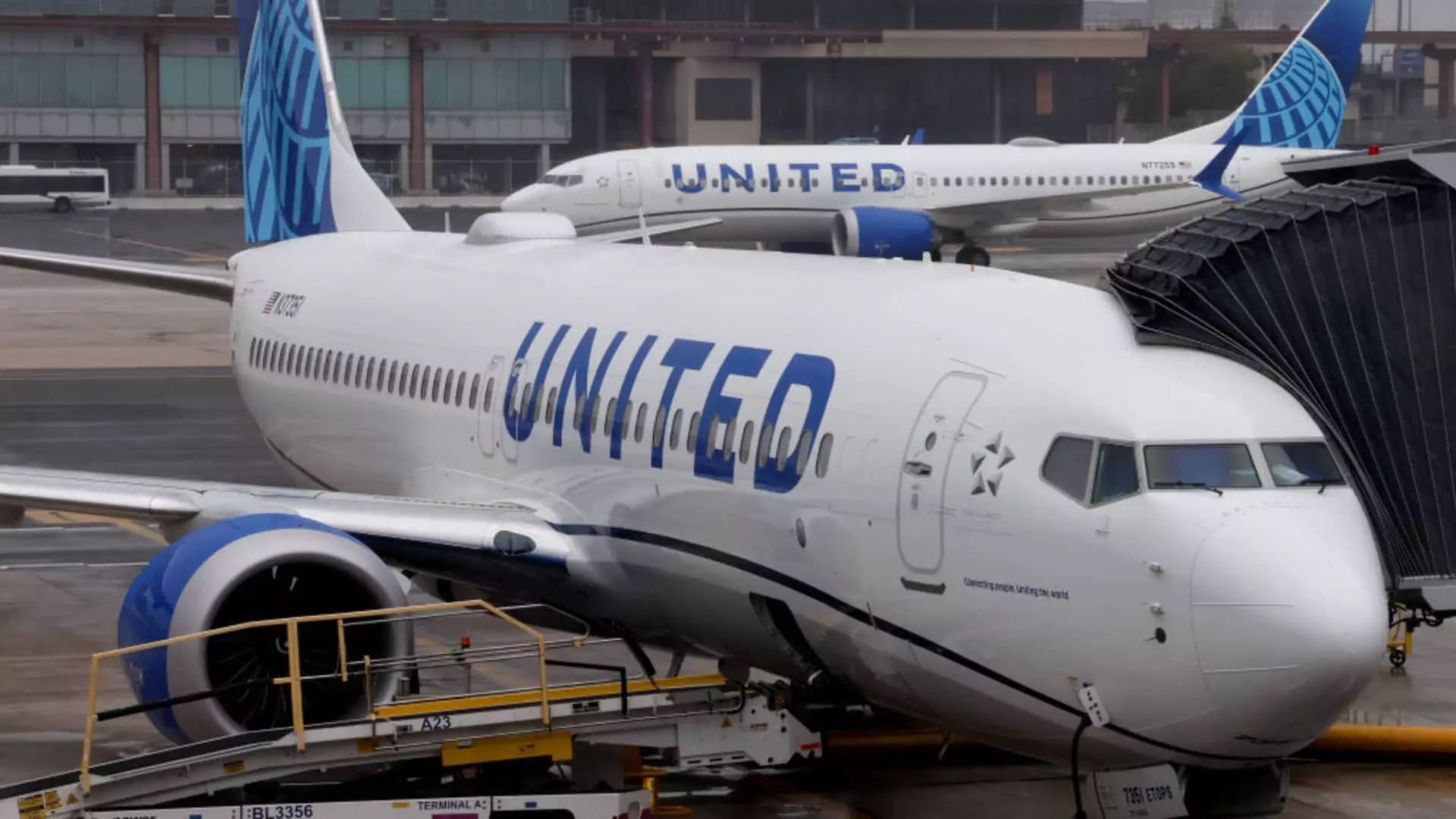In a financial landscape that often feels like a game of chance, airline stocks have recently taken center stage with a mix of euphoric highs and disheartening lows. United Airlines soared nearly 7% after delivering an unexpected adjusted earnings of 91 cents per share, which beat analysts’ forecasts. However, the reality check arrived with their revenue figures, which missed expectations at $13.21 billion against a forecast of $13.26 billion. This phenomenon is a classic case of the earnings surprise paradox—where a beat on earnings per share can’t save a falling stock if the revenue metrics don’t align with investor expectations. While Delta Air Lines and Southwest Airlines also saw their shares climb in what appears to be a sympathetic surge, it’s imperative to scrutinize whether this optimism is grounded in substantial, sustainable growth or merely a flash in the pan.
Interactive Brokers: A Case of Missed Expectations
In stark contrast to the airlines, Interactive Brokers faced an unexpected decline of 5% in its share price after announcing earnings of $1.88 per share, which was below the anticipated $1.92. Here, the clear lesson is that even firms with solid revenue streams can falter when they don’t meet profit expectations. The company’s decision to initiate a four-for-one stock split and raise dividends might seem appealing, but can it really compensate for disappointing earnings? Investors are increasingly wary, especially when companies, despite declaring sound revenue figures, struggle to keep pace with projections. This disconnect could be indicative of broader economic worries, particularly concerning earnings manipulation or a slowing growth trajectory in the financial services sector.
J.B. Hunt: Falling Behind in a Competitive Sector
J.B. Hunt Transport Services, a giant in logistics, reported first-quarter earnings that initially seemed impressive; however, the stock plummeted by 6%. Even though the transportation titan reported a beat on both the top and bottom lines, the year-over-year declines in revenue and operating income raised alarm bells. This raises questions about the long-term sustainability of a business that cannot grow its top line, especially in an age when logistics and transportation are critical to a recovering economy. Investors must ask: is there more to the story than meets the eye, and what does this say about the operational efficiency of such entrenched players in the industry?
The Media Sector Takes a Hit
Omnicom Group didn’t escape this trend either, losing over 2% despite exceeding earnings expectations by delivering $1.70 per share. The discrepancy between expectations and reality again shines a spotlight on the vulnerability of sectors tied closely to economic performance and discretionary spending. With media consumption shifting rapidly and traditional advertising models under pressure, can Omnicom truly innovate fast enough to meet evolving market demands? Investors will undoubtedly be watching closely, and arguably, with a skepticism that could redefine engagements in this space.
Nvidia’s Challenges Highlight Broader Geopolitical Risks
Finally, Nvidia’s 5% share drop after announcing a $5.5 billion charge tied to exports of its H20 graphics processing units is another striking example of how external factors can heavily impact even the most renowned companies. The U.S. government’s indication of requiring licenses for exports to key markets, particularly China, brings to light the fragility of tech stocks in an increasingly geopolitically charged atmosphere. This situation serves as a stark reminder that past successes in the tech sector do not guarantee future stability, especially when external pressures can shape outcomes unpredictably.
In a market continually influenced by earnings surprises, a balanced approach to investing is essential; understanding these dynamics may provide glimpses into future trends across various sectors.

